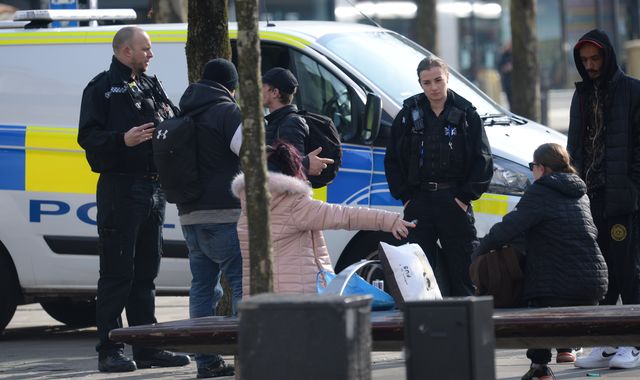Coronavirus: Police data understated how many lockdown fines were issued to BAME people
Written by News on 25/06/2020
Chief constables have admitted their rush to publish data on lockdown fines may have understated how many were given to BAME people.


However, they denied it hid a deeper problem of racism in police forces across England and Wales.
Martin Hewitt, chair of the National Police Chiefs Council, told MPs: “It does not and that’s unfair. This came in very quickly and we brought the data from all forces into one place and decided to be open with it every two weeks.
“We made corrections and are now analysing the data and we will be confident in what it tells us.”
Yvette Cooper, the chair of the Home Affairs Committee, said she was “really shocked” police chiefs didn’t have accurate data collection and analysis at the start of the lockdown in March, when officers began handing out fines for lockdown breaches.
Publicly available data suggests that black, Asian and minority ethnic (BAME) people have been at least 50% more likely to receive coronavirus lockdown fines in England than those who are white.
Analysis between 27 March and 8 June suggested that the number of fines handed to white people was about 20 per every 100,000 in the population.
Bur for those from BAME backgrounds, this rose to 30 fines per 100,000 people.
Ms Cooper said one set of early NPCC figures revealed 16% of fines were given to black and minority ethnic people, with 15.5% of the UK’s population from a BAME background. But it later emerged that the true figure for fines was actually 21%.
Assistant Commissioner Hewitt said the ethnicity of those fined was not always recorded by some police forces.
He said: “That illustrates why it’s important to analyse the data. We put the data out because it was novel, but that was the danger.”
Mr Hewitt was also challenged by MPs over the use of police stop-and-search powers, which have historically been used more against people from BAME backgrounds.
He denied an accusation that police forces, who have been given more stop-and-search powers, were “addicted” to its use.
“There is a question over disproportionality in the use of stop and search. We need a greater level of understanding and are talking to our communities,” he added.
He defended stop and search as an important crime fighting tool, but said it was one of several options and not a cure-all in solving crime.
One MP quoted a previous witness to the committee who claimed that racism in the police service was “alive and kicking”.
Mr Hewitt said: “I refute that racism is rife in the police service. There are people who hold racist views, like there are in any organisation. We reflect the society we serve.”
MPs said Home Office figures had revealed that black people were eight times as likely to be tasered than white people.
Police forces have been given £16m in the past year to train and arm more officers with the electronic stun guns.
Ian Hopkins, chief constable of Greater Manchester, said: “Taser training is very comprehensive.”
And he told MPs about delays in a police watchdog investigation into the tasering by one of his officers of a man in front of his distressed young son.
He said the Independent Office for Police Conduct probe into the arrest of Desmond Ziggy Mombeyarara, 34, at a Manchester petrol station in May will take up to six months.
His force was criticised after brief footage of the incident was shared widely on social media.
Mr Hopkins said: “One of the real issues that I’ve got is the length of time still that some of these investigations take. The only narrative that is out there is that short clip on social media.
“I had an update from the IOPC on 10 June that says that investigation is going to take three to six months. That was already nearly a month after it occurred.
“So I think we have to do something different in terms of being able to do these things much more quickly, in being able to get out a much more balanced narrative.”
(c) Sky News 2020: Coronavirus: Police data understated how many lockdown fines were issued to BAME people







